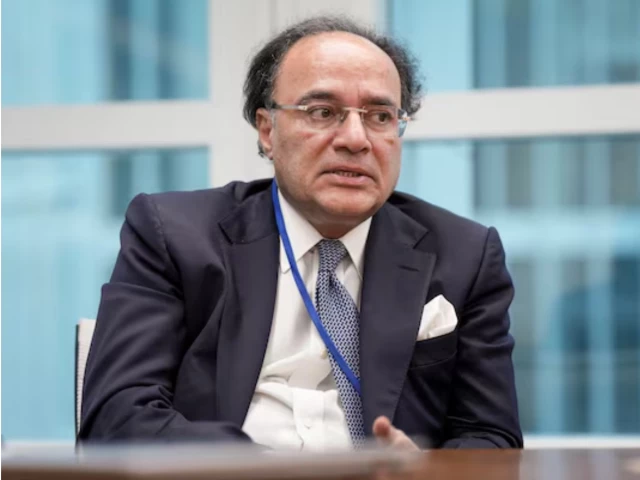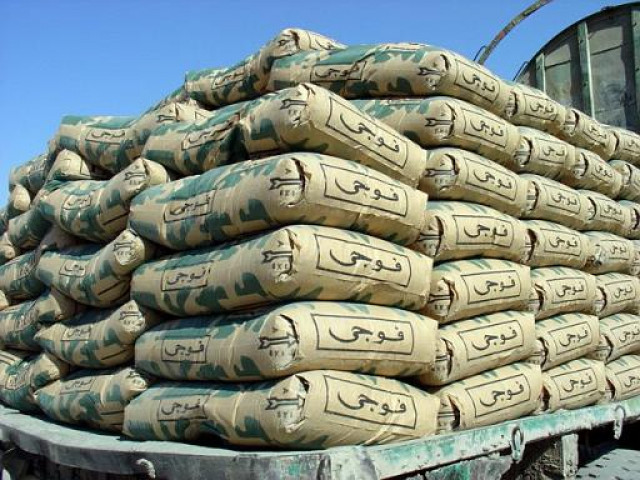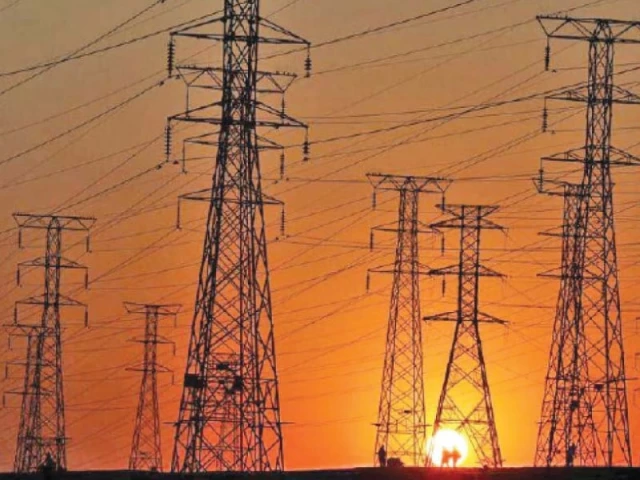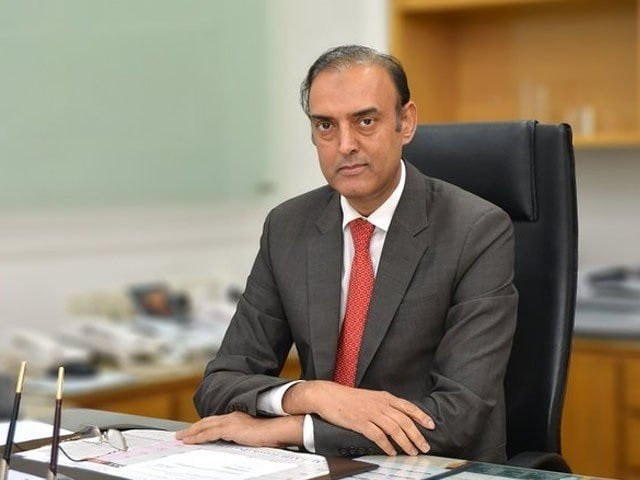Business
Pakistan unveils new plan to boost social projects with public and private funding | The Express Tribune

Finance Minister Muhammad Aurangzeb speaks during a Reuters interview at the 2025 annual IMF/World Bank Spring Meetings in Washington, DC, US, April 25, 2025. Photo: Reuters/ File
KARACHI:
Finance Minister Muhammad Aurangzeb, reflecting on prospects of improving philanthropy through policy and tax structure improvements, said that Pakistan’s emerging Social Impact Financing Framework, a new initiative under the Prime Minister’s Office, is aimed at mobilising public, private, and philanthropic capital for measurable social outcomes.
Speaking at the Corporate Philanthropy Awards 2025, hosted by the Pakistan Centre for Philanthropy (PCP), he said Pakistan’s corporate giving reached a record Rs25.44 billion in 2023 and could double if the government undertakes meaningful policy and tax reforms to encourage structured giving and simplify compliance. “Corporate giving worth Rs25 billion is an extraordinary milestone,” he said.
Aurangzeb said the government is modernising development financing through the new framework, which seeks to link social spending directly to measurable results. He said the initiative represents a shift from traditional, grant-based aid toward results-based and impact-linked financing to ensure every rupee achieves tangible outcomes.
“Rather than focusing on generalised spending, we are moving toward results-based and impact-linked financing,” he said. “This requires blending public, private, and philanthropic capital into cohesive, outcome-driven structures.”
He announced that one of the key projects under the framework will be Pakistan’s first Skills Impact Bond, developed with the British Asian Trust and the National Vocational and Technical Training Commission (NAVTTC).
“The Skills Impact Bond is being launched to promote skills development and sustainable livelihoods,” he said. “It will move us away from relying solely on traditional bank funding and allow us to tap into capital markets to raise financing for social purposes.”
Aurangzeb added that the British Asian Trust’s partnership brings global expertise to the program, helping Pakistan pioneer market-based social investment models that align philanthropic giving with long-term economic outcomes.
PCP’s Corporate Philanthropy Report 2023 revealed that Pakistan’s corporate sector contribution was the highest in the two decades since PCP began tracking corporate giving. Public Listed Companies contributed Rs18.23 billion, followed by Public Unlisted Companies with Rs3.28 billion and Private Limited Companies with Rs3.93 billion.
Despite the record figure, Aurangzeb and several experts highlighted policy gaps, complex tax laws, and regulatory inefficiencies that continue to constrain Pakistan’s philanthropic ecosystem.
Pakistan’s tax code offers limited incentives for charitable giving, and the non-profit certification process remains slow and cumbersome. The minister said these issues must be addressed to enhance transparency and accountability.
“Efficiency is needed at all ends,” he said, referring to bureaucratic hurdles. “We must make it easier for both donors and non-profits to operate, while ensuring credibility and oversight.”
“Philanthropy is not just an act of charity, it’s an expression of our national identity,” he said. “You are helping build a more compassionate, inclusive Pakistan.”
He reaffirmed the government’s commitment to partner with PCP and the private sector in promoting a structured culture of giving. “You are guiding, connecting, and recognising those who build with purpose and responsibility,” he said. “The government stands with you as a reliable partner – fully committed to supporting your efforts in shaping a transparent, impactful, and sustainable philanthropy ecosystem.” PCP Chairman Zaffar A Khan (SI) also addressed the gathering, emphasising that with proper facilitation, the corporate and non-profit sectors can significantly expand their contributions to Pakistan’s social development.
Business
FDA official calls UniQure’s gene therapy a ‘failed’ treatment for Huntington’s disease

Thomas Fuller | SOPA Images | Lightrocket | Getty Images
UniQure needs to run another study to prove that its gene therapy “actually helps people with Huntington’s disease,” a senior U.S. Food and Drug Administration official said on a call with reporters Thursday.
The official, who requested anonymity before discussing sensitive information, confirmed the agency has asked the company to run a placebo controlled trial of its treatment, which is administered directly into the brain. UniQure has said that type of study isn’t ethical because it would require putting people under general anesthesia for hours, a characterization the official disputed.
“So what is really going on? UniQure is the latest company to make a failed therapy for Huntington’s patients,” the official said. “They likely acknowledge or understand at some deep level that their trial failed years ago, and instead of doing the right thing and running the correct clinical study, UniQure is performing a distorted or manipulated comparison in the mind of FDA.”
The comments mark the latest development in a messy public spat between UniQure and the FDA, and as the agency comes under fire for a number of recent drug approval application rejections, including some where companies have accused it of going back on previous guidance. FDA Commissioner Marty Makary in an interview with CNBC’s Becky Quick last week seemingly criticized UniQure’s gene therapy for Huntington’s disease. Makary didn’t name UniQure but described its treatment.
UniQure then accused the FDA of reversing its stance that the company’s clinical trial data would be sufficient to seek approval. UniQure’s study used an outside database to measure how patients with Huntington’s disease might decline without treatment, known as an external control. UniQure has said it wouldn’t be feasible to run a true randomized, double-blind placebo-controlled study, considered the gold standard, because it wouldn’t be ethical to make people undergo a sham hours-long brain surgery.
The FDA official said the agency “never agreed to accept this distorted comparison” and the FDA “never makes such assurances.” Instead, the “FDA will always say, ‘Well, we have to see the data when we get it.'”
UniQure didn’t immediately comment.
The company’s stock rose more than 10% on Thursday and has fallen 58% this year as of Thursday afternoon.
Business
US mortgage rates rise to 6% after three-week slide as oil-driven bond yields climb – The Times of India

The average long-term US mortgage rate edged higher this week, ending a three-week decline as bond yields rose amid oil-price pressures linked to the war with Iran.The benchmark 30-year fixed mortgage rate increased to 6% from 5.98% last week, mortgage buyer Freddie Mac said on Thursday. A year ago, the average rate stood at 6.63%, AP reported.The modest uptick breaks a three-week slide in borrowing costs, with mortgage rates having hovered close to the 6% mark for most of this year. Last week’s average had marked the first time the rate dipped below 6% since September 2022, reaching its lowest level in nearly three and a half years.Mortgage rates are influenced by several factors, including the Federal Reserve’s interest-rate policy, investor expectations about inflation and economic growth, and movements in the bond market.They typically track the direction of the 10-year US Treasury yield, which lenders use as a benchmark for pricing home loans.The 10-year Treasury yield rose to 4.14% at midday Thursday, up from around 4% a week earlier.Treasury yields have moved higher in recent days as rising oil prices added fresh inflation concerns, potentially complicating the Federal Reserve’s plans to cut interest rates.
Business
US stocks today: Dow tumbles 800 points, S&P 500 and Nasdaq slip as oil surges after Iran tanker strike – The Times of India

US stock markets fell on Thursday as investors turned cautious after the previous session’s rally, while rising oil prices and geopolitical tensions weighed on sentiment.The Dow Jones Industrial Average dropped 801 points, or 1.6 per cent, dragged down by losses in stocks such as Caterpillar and Goldman Sachs. The S&P 500 declined 0.9 per cent, while the Nasdaq Composite fell 0.6 per cent.The selloff came as crude oil prices jumped to their highest level since June 2025 after Iran said it had struck an oil tanker with a missile. US West Texas Intermediate crude futures surged 6 per cent to trade above $79 per barrel, while international benchmark Brent crude futures rose about 3 per cent to more than $84 per barrel. Oil prices had stabilised in the previous trading session.Markets had rallied on Wednesday, supported by gains in technology and semiconductor stocks. The Dow had snapped a three-day losing streak, while the S&P 500 and Nasdaq Composite ended the session with solid gains.Despite the ongoing US-Israeli air campaign against Iran, US markets have performed relatively better than European and Asian counterparts this week, largely supported by a rebound in technology stocks that had been hit hard during February’s selloff.The tech-led recovery in the previous session helped the Nasdaq erase its weekly losses, putting the index on track to end the week in positive territory if gains hold through Friday.Investors remain concerned that prolonged disruption to shipping through the Strait of Hormuz — a key global energy corridor –could push oil prices higher and add to inflationary pressures through rising energy and shipping costs.Markets are particularly wary of crude prices moving towards $100 per barrel, which could complicate the Federal Reserve’s efforts to control inflation while considering interest-rate cuts.“For the past couple of years, bringing inflation down has been the Fed’s entire focus, and they were finally making progress. But if energy stays expensive, inflation could start climbing again and that would force the Fed to rethink its plans,” said Adam Sarhan, chief executive of 50 Park Investments, Reuters quoted.According to data compiled by LSEG, investors are increasingly expecting the Federal Reserve to delay a 25-basis-point interest rate cut to September from the previously anticipated July timeline.Among sectors, healthcare led declines on the S&P 500, dropping 1.6 per cent. The energy index, however, gained 0.7 per cent, with shares of ConocoPhillips and Valero Energy rising about 2 per cent each.The CBOE volatility index (VIX), widely seen as a gauge of market fear, rose 0.9 points to 22.08, reflecting cautious investor sentiment. The small-cap Russell 2000 index fell 1 per cent.Travel and tourism stocks, which are sensitive to fuel costs, were under pressure. Delta Air Lines slipped 3.3 per cent, while Royal Caribbean Cruises declined 0.6 per cent.On the other hand, some travel booking companies rallied sharply. Booking Holdings jumped 11 per cent and Expedia surged 8 per cent after a report by The Information said OpenAI was scaling back on-platform shopping checkout plans for ChatGPT, easing concerns about disruption to online marketplace businesses.Chip stocks showed mixed performance. Nvidia edged down 0.3 per cent, while Marvell Technology gained 1.3 per cent.Shares of Broadcom rose 2.9 per cent after the chip designer projected that its artificial intelligence chip revenue could exceed $100 billion next year.Elsewhere, Trade Desk surged 22.5 per cent following a report that OpenAI had held early discussions with the advertising technology company regarding the sale of advertisements.Economic data released on Thursday showed the number of Americans filing new applications for unemployment benefits remained unchanged last week.Investors are also awaiting remarks from Federal Reserve Vice Chair Michelle Bowman later in the day, ahead of the closely watched non-farm payrolls report due on Friday.On the New York Stock Exchange, declining stocks outnumbered advancers by a ratio of 2.48-to-1, while on the Nasdaq the ratio stood at 1.63-to-1.The S&P 500 recorded four new 52-week highs and two new lows, while the Nasdaq Composite registered 17 new highs and 33 new lows.
-

 Politics1 week ago
Politics1 week agoWhat are Iran’s ballistic missile capabilities?
-

 Business7 days ago
Business7 days agoIndia Us Trade Deal: Fresh look at India-US trade deal? May be ‘rebalanced’ if circumstances change, says Piyush Goyal – The Times of India
-

 Business1 week ago
Business1 week agoAttock Cement’s acquisition approved | The Express Tribune
-

 Politics1 week ago
Politics1 week agoUS arrests ex-Air Force pilot for ‘training’ Chinese military
-

 Fashion1 week ago
Fashion1 week agoPolicy easing drives Argentina’s garment import surge in 2025
-

 Business1 week ago
Business1 week agoHouseholds set for lower energy bills amid price cap shake-up
-

 Sports6 days ago
Sports6 days agoLPGA legend shares her feelings about US women’s Olympic wins: ‘Gets me really emotional’
-

 Fashion7 days ago
Fashion7 days agoTexwin Spinning showcasing premium cotton yarn range at VIATT 2026











